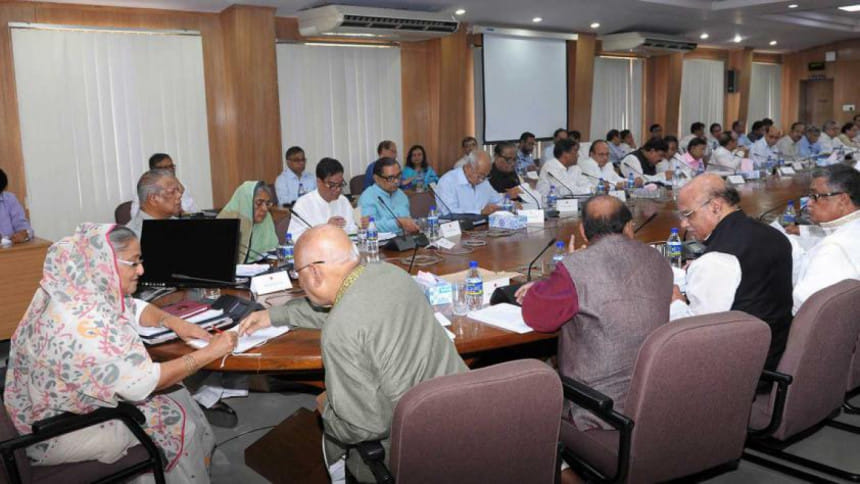Punishment even if wrongdoers don’t admit

Mobile courts will get power to punish wrongdoers even if they do not admit their offences, according to a draft law approved by the cabinet.
The draft will have to be vetted by the law ministry before the authorities start applying it.
Under the Mobile Court (Amendment) Act, 2015, an executive magistrate leading such courts can gave punishment or fine an offender based on surroundings evidence and statement of witnesses.
The approval came at a regular cabinet meeting today. Prime Minister Sheikh Hasina chaired the meeting held at the cabinet room of Parliament.
After the cabinet meeting, Cabinet Secretary M Musharraf Hossain Bhuiyan briefed it to reporters at Bangladesh Secretariat.
The Cabinet secretary said two new provisions have been added with the Mobile Court (Amendment) Act.
One of the provisions admits use of electronic signature and biometrics and ICT while the other allows executive magistrate to seek expert opinion while conducting mobile court, Bhuiyan said.
The act was enacted in 2009, under which adulterated foods, eve teasing, proper conduction of public exams and speedy disposal of trials is regulated, he said.
Between 2010 and 2014, mobile courts disposed of 5.5 lakh cases, he added.
Replying to a query, Musharraf said, there will be no confrontation between the executive and judicial magistrates following this amendment.
"Executive magistrate can only conduct trial on the issues that happens in front of them, while the judicial magistrate can conduct trial based on witness confession," he said.

 For all latest news, follow The Daily Star's Google News channel.
For all latest news, follow The Daily Star's Google News channel. 



Comments